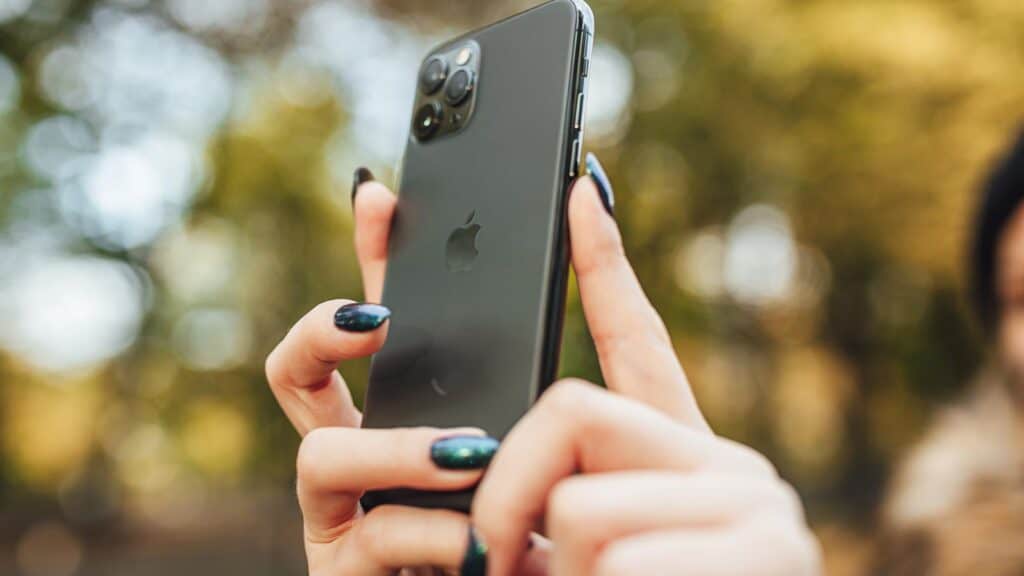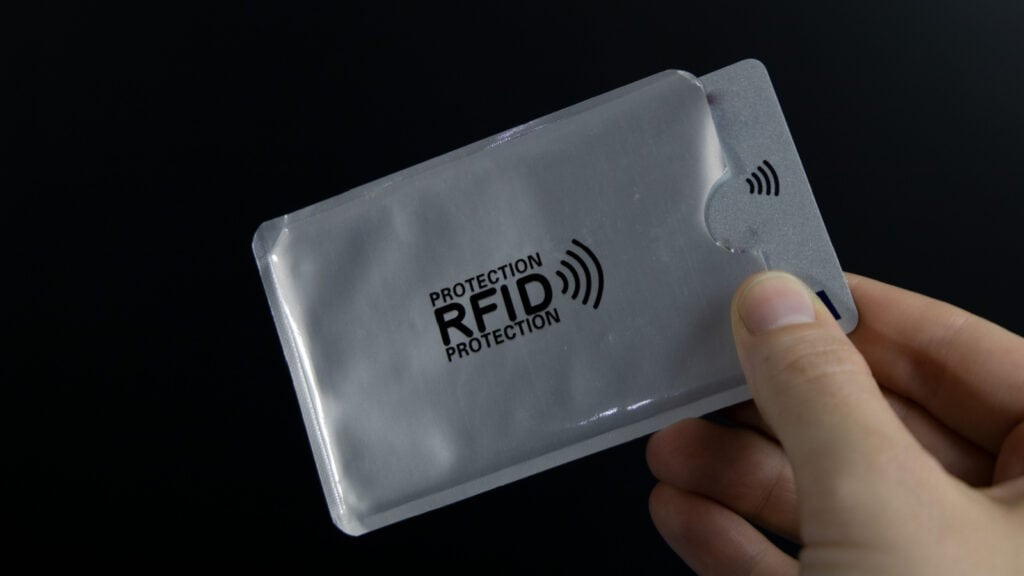Think Your Period-Tracking App Is Private? Think Again.
We have all heard and read the stories: our information online is not necessarily private. Concerns about the privacy implications of period-tracking apps have surfaced, particularly in light of recent legal developments impacting reproductive rights. With millions relying on these apps for health monitoring and family planning, questions arise regarding the safety and security of personal data. But just how warranted are these concerns, and what steps can users take to protect their privacy?
What Do Period Trackers Do?

If you have never used a period tracker, you might wonder what they do? They can be quite accurate in predictions about your next period, however, these apps don’t just offer period insights—they also collect a significant amount of personal data, sometimes more than you realize.
Periods and More

Period tracker apps can gather sensitive information such as the frequency of your sexual activity, your attempts to conceive, pregnancies, and even miscarriages. When Consumer Reports (CR) evaluated period tracker apps they discovered that the five apps reviewed, which store user data in the cloud, did not guarantee that this information would not be shared with third parties, even when users believed they were anonymous.
Data Could Affect Many Other Areas Of Your Life

These weak privacy protections could allow collected data to be used to target users with ads or influence decisions on life insurance coverage or loan interest rates.
Information Could Be Accessed In Legal Proceedings

With the Supreme Court overturning Roe v. Wade and ending the constitutional right to an abortion, many app users are now more worried that their fertility data, missed periods, and other personal information could be used against them in criminal and civil cases as evidence of having had an abortion.
Miscarriages could also be scrutinized because they are often conflated with induced abortions in the law, and insurers sometimes classify them similarly. These privacy issues are heightened by the newly restrictive abortion laws in many states.
Periods Ending As a Flag

Irina Raicu, director of the internet ethics program at the Markkula Center for Applied Ethics at Santa Clara University in California, raises concerns that prosecutors might use data from period tracking apps, or other online data, to show that someone had a regular menstrual cycle and then stopped, which could be used as evidence to suggest they had an abortion.
We Live Under Surveillance

Eva Galperin, director of cybersecurity for the Electronic Frontier Foundation, explains that since Roe v. Wade, a pervasive surveillance state has emerged where everyone carries tracking devices in their pockets. This creates a wealth of information about individuals who might become pregnant, are pregnant, or are seeking abortion services, a vast amount of data that wasn’t available in the 1970s when Roe v. Wade was decided. She notes that this allows individuals and law enforcement to potentially create a broad surveillance network targeting those seeking abortion services.
Law Enforcement Precedent

The precedent for law enforcement using digital activity data in investigations is well-established. A 2020 University of Baltimore Law Review article highlights that police and prosecutors conducted at least 50,000 digital device extractions across the U.S. between 2015 and 2019 for various crimes, including minor offenses like graffiti and shoplifting to more severe charges. The article also mentions cases where women were indicted or convicted of crimes against their fetuses based on online searches or text messages about abortion drugs.
Pitting Citizen Against Citizen?

Raicu also points out that laws like those in Texas could lead to private citizens seeking data on others’ online activities. With new laws incentivizing people to sue others, there are concerns that private citizens could find ways to access information from period tracking apps.
Understanding Data Privacy Concerns

Privacy policies among period-tracking apps vary significantly, raising questions about data usage and sharing practices.
Not All Apps Created Equal

While some apps adhere to stringent privacy standards, others engage in data monetization, potentially exposing user information to third parties without adequate consent. The absence of comprehensive regulations like HIPAA further complicates matters, leaving users vulnerable to data exploitation.
Navigating the Data Landscape

The commodification of health data poses a significant risk, especially in contexts such as targeted advertising and insurance profiling. Instances of data sharing with external entities, as evidenced by past controversies involving prominent app providers, underscore the need for greater transparency and accountability in the industry.
Where You Live Might Make A Difference

Moreover, the regulatory framework remains fragmented, with state-level laws offering varying degrees of protection.
Think Carefully About App Benefits vs. Downsides

Users must weigh the convenience of app usage against the potential risks of data exposure and legal scrutiny.
Shop For The Right App For You

Opting for apps with transparent privacy policies and robust security measures can mitigate risks associated with data exploitation. Additionally, advocating for comprehensive regulatory frameworks and user rights remains essential in fostering accountability among app developers and data processors.
Consumer Reports Makes Recommendations

Consumer Reports has a Digital Lab that screens and tests digital products. They recommend Drip, Euki, and Periodical, which store data locally and don’t allow third-party tracking.
Read The Fine Print

According to the Consumer Reports study, Lady Cycle mainly uses local storage, and their marketing materials say user data is never shared with third parties, however, CR’s analysis found that the app does have a third-party tracker enabled. Lady Cycle did not respond to CR’s request for comment.
Empowering Informed Decision-Making

Ultimately, users must exercise vigilance and discernment when engaging with period-tracking apps, carefully evaluating the trade-offs between convenience and privacy. By prioritizing platforms committed to ethical data practices and advocating for regulatory reforms, individuals can contribute to a safer digital ecosystem that respects and protects personal privacy.
The Takeaway

The intersection of technology and health monitoring presents both opportunities and challenges, particularly concerning data privacy in period-tracking apps. As users navigate this landscape, awareness of potential risks and proactive measures are crucial in safeguarding personal information and advocating for greater transparency and accountability in the digital sphere.
In a rapidly evolving digital landscape, prioritizing privacy and informed decision-making is paramount to preserving individual autonomy and safeguarding personal data against exploitation.
Choosing Where To Be Pregnant: Which States Are Conducive To Safe Pregnancy

Women are facing a relentless assault in our nation, with the fundamental right to bodily autonomy hanging precariously in the balance. Increasingly, women are being stripped of their ability to choose whether or not they wish to carry a pregnancy to term, and vital healthcare services that could save lives are being withheld in an attempt to curtail women’s autonomy.
In response, we have identified 25 states where we believe women can reasonably expect conditions conducive to safe pregnancy.
READ: Choosing Where To Be Pregnant: Which States Are Conducive To Safe Pregnancy
How To Safeguard Your Identity Using RFID Protection

We’ve all read those stories or seen the news videos about someone who lost their entire life’s savings because a thief scanned their credit card or bank card that was in their wallet or back pocket. How does this happen and how do you avoid this? READ: How To Safeguard Your Identity Using RFID Protection
Why Personal Photos On Your Phone Screen Can Pose Security Risks

We live in a digital age, and while it can offer convenience, we have to be mindful of what we share, for personal security’s sake. Our smartphones, for instance, have become more than just devices; they are extensions of our identities. It’s not uncommon to see individuals customizing their phones with personal photos as wallpapers. While this may seem like a harmless way to express oneself, it can inadvertently expose users to various privacy and security risks. In this article, we explain why setting a personal photo as your phone screen might not be the wisest decision, and we offer alternative solutions to mitigate these risks. READ: Why Personal Photos On Your Phone Screen Can Pose Security Risks
Join Us

Join us on this empowering journey as we explore, celebrate, and elevate “her story.” The Queen Zone is not just a platform; it’s a community where women from all walks of life can come together, share their experiences, and inspire one another. Welcome to a space where the female experience takes center stage. Sign up for our newsletter so you don’t miss a thing, Queen!







